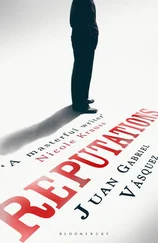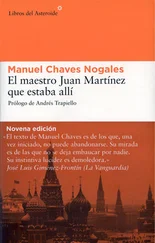“There were twenty-one bodies,” said Agatha. “Most of them were lying on the floor, there, not on the parquet but on mats.”
Oliveira tried to conjure up the image.
“As if they were asleep. Each one on their mat, each mat parallel to the next and all of them equidistant from each other.”
“How old was your daughter?”
“Seventeen, Oliveira. Seventeen fucking years old. People should have to be old enough to buy booze before they’re allowed to join a cult.”
It was too sad an irony to be convincing. Oliveira looked outside, the van’s lights dazzled him and he felt a sharp pain in his retina. The running engine’s murmur reached them, dimmed and distant: the ventilation switched on, the fan belt squealed like an injured animal. Beside the stairs, before going up, Agatha pointed to a niche, the only interruption of the smooth surface of the wall, where the group had kept a nickel silver chalice that was later melted down and a hardcover Bible with rice-paper pages and a velvet bookmark.
“I was able to see it once,” said Agatha. “The Battle of Armageddon had been underlined with a light pencil. ‘And the armies which were in heaven followed him upon white horses, clothed in fine linen, white and clean.’ That part was underlined, I remember because Alma recited it on a recording she made for me.”
“Light pencil?”
“Yes, you know. Soft lead, or whatever they’re called. The ones architects use.”
Oliveira was struck by the way she was talking about it as if it were a modern relic or a juvenile cult object, Lennon’s glasses or Bogart’s hat. When he wanted to tell her, he felt arrogant. Who was he to describe the shape of her grief? The stairwell smelled of damp and dust, and Oliveira’s nose felt relief when they got to the upper floor, where the air was no less heavy but had a bit more freedom of movement. The light, upstairs, was indirect: again blue, again black.
“Do you want me to go down and move the car? If I back it up a little, maybe we’ll get a bit more light.”
“No, stay here. The tour’s almost finished.”
“You don’t have to be sarcastic, Agatha.”
“Believe me, I do, my dear. It’s absolutely necessary.”
In the first room on the left, the door was half closed. Agatha pushed it as if afraid she might wake someone. On each side of the window was a bunk bed without any ladders.
“They look like the ones in the hotel,” said Oliveira. “Except for the color.”
“Except they’re for sleeping and nothing else,” said Agatha. “Nobody kissed anybody here. They all loved each other but didn’t sleep together. They were committed to God the father, married to their new Church.”
She pointed to the bed on the right.
“Alma slept in that one. The four people in this room were women.”
Agatha brushed off the dust and sat down on the bare mattress. Oliveira asked:
“Did she sleep on the top bunk or the bottom?”
“Top. She was taller than me, since she was twelve or thirteen she was a head taller than me.”
“So why are you sitting down there, then? Come on, I’ll help you up.”
Agatha stepped into Oliveira’s interlaced hands: he lifted her easily, and then steadied her with a hand on her bum. She smiled.
“Cheeky,” she said. “You’re not coming up?”
Oliveira stretched out on the lower bunk.
“I’m fine here, thanks.”
He could feel every knot and every seam of the mattress in his back. He crossed his arms behind his head and closed his eyes. He played at opening them and closing them, acknowledged there wasn’t much difference and, nevertheless, that his eyes were adjusting to the dark, and gradually details of the room were coming into focus: the geometric designs carved on the white door, the bare wire hanging from the ceiling where once a lightbulb would have hung. Above his body, the bedsprings creaked with Agatha’s every movement. Lying there he realized he couldn’t imagine a day of devotion; everything religious was so abstract to him that it was impossible to relate it to waking up, coffee brewing in the kitchen, or taking turns to use the shower. He’d had faith when he was little, of course, because a child is capable of seeing the fulfillment of a prayer, the answer to a plea in anything. And later, what had happened? He got used to the idea of himself, learned that every man is an island, and then the notion disappeared: the notion of that Christian god he’d been told about, that god Oliveira had never seen or heard.
“Oliveira.”
“What’s up?”
“Nothing. Just wondering if you’d fallen asleep.”
“I’m wide awake,” he said. He heard the sound of friction. He guessed that Agatha was scratching the wall with her fingernail.
“You wouldn’t leave without telling me, would you?” she said.
“I’m quite comfortable here, why would I leave?” said Oliveira. “And you? Do you want to get going?”
There was no answer. Oliveira watched the silvery springs working, the delicate contractions each time the woman above him moved. The nail scraped the wall.
“Sometimes babies suddenly forget to breathe. I don’t know why that happens,” said Agatha.
And she kept talking. In the days after giving birth, Agatha woke up often in the middle of the night wondering if the little girl was still alive, if she hadn’t died. “As happens to babies, Oliveira, you know.” Then she’d tiptoe over to the crib and put her face up close to the little girl’s: a baby’s breathing was one of the quietest things in the world. At that moment, she’d give thanks, thanks to God, sure that no one else was responsible that something as frail as a baby could survive overnight.
“In films there’s always someone who wakes up because they feel that someone else is watching them. But it’s not a lie, you know.”
One night — Alma would have been about twelve, she’d just started her first period — Agatha woke up to find her daughter standing in front of her. She asked her if something was wrong; she imagined first of all what seemed obvious, and told her it didn’t matter if she’d stained the sheets. Alma kissed her on the forehead, replied that it wasn’t that, and went back to bed.
“It took me almost a year to understand those visits,” said Agatha.
Oliveira waited for her to follow up with an explanation, but Agatha fell silent.
“What was it?” he said then. “What did you understand?”
“Alma hadn’t stained the sheets,” said Agatha. “She never had nightmares, or any of that nonsense. She simply wanted to make sure I was still breathing.”
Then she fell silent.
“And what does that mean, according to you?” Oliveira asked.
But Agatha kept quiet again.
“Don’t get all mystical, okay?” said Oliveira in irritation. “There’s nothing that annoys me more. We’d better talk about something else. The van, which is still running. If the battery doesn’t die, we’re going to run out of gas.”
“How long till daybreak?”
“Not long, I think. Try to see your watch in this gloom, if you can.”
He, however, consulted the sky. He strained to see, tried to concentrate as if his willpower were capable of projecting the violet glints of dawn onto the clouds. A solitary lizard clung to the wall above the window frame, and Oliveira thought that winter would soon kill it.
“I can’t see anything. Not a single light anywhere.”
“Shit,” said Agatha. “Don’t leave me alone, okay?”
“I’m not going to leave you alone.”
“How can it be dark for so long? Doesn’t it seem horrible to you, Oliveira? A person alone, at night. It’s like a conspiracy, as if someone did it on purpose, and I swear I’m getting tired of it. It’s no life for normal people, is it?”
Читать дальше










